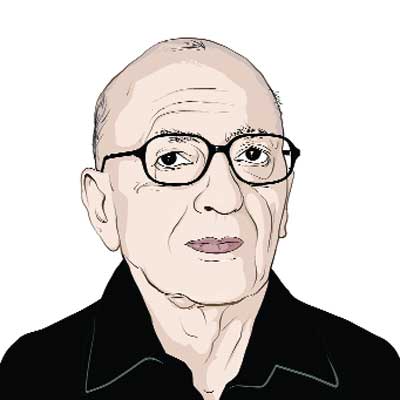Opinion And the slide towards sundown
After 1958,Nehrus aura began to fade as he faced down trouble from China,Pakistan,Kashmir and more.
Call it high noon or summer solstice (High noon of the Nehru era,IE,April 25),the problem with it is that afterwards,the sun has nowhere to go except down. So it was with Jawaharlal Nehru,as 1958 drew to a close. That year marked both the peak,and the start of the downhill trend in the iconic prime ministers illustrious career. No wonder that many years later,Lord Louis Mountbatten told Nehrus official biographer,S. Gopal,that,if Nehru had died in 1958,history would have remembered him as the greatest statesman of the 20th century. At the same time,the last British viceroy and independent Indias first governor-general also stated that despite his subsequent errors and failings,Nehru remained one of the greatest statesmen of the generation after Churchill,Roosevelt and Stalin.
Two international episodes of that period,now forgotten but then looming large,show the worlds high esteem for Nehru and India. Both the United States and the Soviet Union were busy testing their nuclear weapons in the atmosphere. The rest of the world demanded that these be suspended,and nuclear powers embark on serious talks for disarmament. The two superpowers and the UN secretary-general,Dag Hammarskjold,appreciated Nehrus strenuous efforts in support of that cause. To be sure,nothing much was achieved,yet each side continued to request Nehru to persuade the other to be reasonable. A letter from Eisenhower to Nehru,dated November 27,1958,speaks for itself: Universally you are recognised as one of the most powerful influences for peace and conciliation in the world. I believe that because you are a world leader for peace in your individual capacity,as well as a representative of the largest neutral nation…
Luckily,the Soviet Union agreed to a temporary suspension of its tests and the US promised to follow suit. But just when progress towards disarmament seemed possible,a major crisis erupted in West Asia. In the midst of a civil war in Lebanon,Brigadier Qasim staged a coup against the Iraqi monarchy. The US immediately landed Marines in Lebanon and Britain dispatched its troops to Jordan. Tension mounted and the fears of a wider armed conflict grew. One again,Nehru played a stellar role in bringing the situation under control. This time around,Nikita Khrushchev suggested a conference of the heads of government of the Soviet Union,Britain,France,the United States and India.
The conference never took place,but the international community took note of Indias inclusion and Chinas exclusion in the Soviet leaders proposal,which underscored Nehrus international standing as well as the growing cordiality between India and the USSR. Most,significantly this was the first public acknowledgement by Moscow of the ongoing Sino-Soviet split.
Understandably,China did not like this at all,and this is as good a place as any for me to record that although the deterioration in India-China relations was the basic cause of the onset of the Nehru eras decline,all through 1958,there was hardly any public mention of it. Both sides were keeping under wraps the increasingly acrimonious notes they were exchanging and even border violations and skirmishes. The first protest note against Chinas construction of the Sinkiang-Tibet road through Aksai Chin was also sent to Beijing during that year. But,like all others,before and after,it was neither published nor presented to Parliament.
At that time China was having a major internal crisis in the wake of the Hundred Flowers period. The respected defence minister,Peng Dehuai and others became victims of Maos purge that followed. In India,Nehrus rationale for keeping his responses to Chinas unfriendly utterances and actions in low key,was that while India must protect its dignity and defend its borders,it should not allow the problem to spin out of hand. He was also convinced,wrongly as it turned out,that China would not attack India,and took care to add,nor would Russia.
The one India-China incident that played out in public but did not cause much of a stir related to a planned visit by Nehru to Tibet at the invitation of the Dalai Lama. In January 1958,forwarding the Dalai Lamas invitation to Nehru,Zhou Enlai had added that he would happily accompany the Indian prime minister. Nehru had replied that he would like to go to Lhasa in September.
When nothing further was heard until August,he asked the Chinese to fix a date. Beijing replied that he should postpone the visit. Nehrus reaction was to go to Bhutan instead,briefly passing through Yatung in Tibet. The journey on horseback was tough,but the result of the Bhutan visit was a much stronger relationship between India and the Himalayan kingdom. The Chinese were not amused.
One of the problems that weighed heavily on Nehrus mind around that time was the need to re-arrest Sheikh Abdullah,Kashmirs towering leader,following his release after a five-year imprisonment that began in 1953. At both junctures,Nehru regretfully saw no other alternative. Combined with this was worry about Pakistan. American military aid was pouring into that country which used it to ratchet up the Kashmir dispute. And then,in October,the Pakistan army,under Ayub Khan,took over.
On a cold December evening,Nehrus son-in-law and MP,Feroze Gandhi started a devastating debate in the Lok Sabha on the state-owned Life Insurance Corporations questionable investments in the dubious companies of a tainted industrialist named Haridas Mundhra (The Mundra affair,IE,December 12,2008). An amount of only a few lakhs of rupees was involved,but Nehrus response was in refreshing contrast to what happens these days. He spoke of the majesty of Parliament and instantly ordered a judicial inquiry by one of the most eminent judges,M. C. Chagla. The inquirys findings led to the resignation of finance minister T. T. Krishnamachari and an outstanding civil servant H. M. Patel.
On the last day of 1958,in his letter to chief ministers,Nehru reassured them about India-China relations and advised them not to believe rumours. This was a grievous mistake,and grievous were its consequences.
The writer is a Delhi-based political commentator





